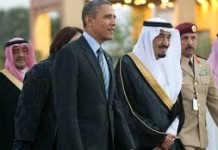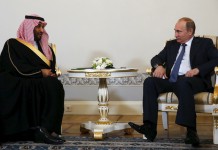Context
 The unprecedented floods in Pakistan have fundamentally altered the political landscape of the nation. In a country where progress is extremely slow even during normal situations, the political parties are finding themselves intellectually challenged in assessing the implications of the debilitating floods on their party politics and positions. The events are moving faster than they have ever operated and the PPP coalition government is increasingly clueless and the country leaderless. In this environment the responsibility for presenting any semblance of a functioning government is increasingly falling on the shoulders of Pakistan’s military, when it least desires it.
The unprecedented floods in Pakistan have fundamentally altered the political landscape of the nation. In a country where progress is extremely slow even during normal situations, the political parties are finding themselves intellectually challenged in assessing the implications of the debilitating floods on their party politics and positions. The events are moving faster than they have ever operated and the PPP coalition government is increasingly clueless and the country leaderless. In this environment the responsibility for presenting any semblance of a functioning government is increasingly falling on the shoulders of Pakistan’s military, when it least desires it.
Analysis
From all accounts Pakistan’s democratic government appears to be heading towards a catastrophic failure. Overtime, a number of states institutions have become nonfunctional. Although several causes for the system failure can be debated such as rampant corruption and the role of army, nonetheless, the inability of government to function and deliver in the present crisis is compounding the consequences. Add to this the mounting public pressure for provision of flood relief and rehabilitation efforts and we have a potentially explosive situation.
The present political quagmire does not automatically mean that the army will attempt a coupe but rather the existing political set-up will likely relegate, as they already are out of necessity. The unfolding economic and humanitarian crisis appears to be beyond the capacity of the political setup to handle. However, the military will continue to act behind the scenes.
Pakistan army has recently regained its lost image and taking charge is perhaps the last thing the general’s want. Running a country whose economy has been severely crippled and is heavily dependent on foreign aid will become increasing complex, especially when the military also has to ensure the security of the country in a hostile geopolitical environment.
Recognizing that change is perhaps inevitable, the questions on the minds of intellectuals and media anchors relate to the shape of the new government and most importantly, how will it come into being. Will a mid-term election be required or a new interim set-up installed from the top, that some call a National government? Additionally, what would be the composition of this new administration?
In his assessment of the situation Altaf Hussain, a media savvy leader of Muttahida Qaumi Movement (MQM), last week called for a system change supported by the military. In addition, he also pleaded the destitute farmers whose lands and crops have been destroyed by the ravaging floods, to rise up against the feudal system. Some of the landlords stand accused of shifting the direction of the waters away from their properties, while as a consequence destroying the crops of helpless surrounding villages particularly in Sind province. However, PoliTact’s sources convey MQM’s main worry is the changing demographics of Karachi, as more Sindi’s are migrating from rural areas due to ineffective relief efforts.
The MQM leader came under harsh criticism from across the political spectrum to have called for an unconstitutional intrusion. Nonetheless, in the aftermath of the floods MQM is attempting to shape the political agenda of the country. In a second TV interview, Altaf added to his position by talking about the highly polarizing issues of land reform and agriculture tax. These hot topics can damage the political base of Pakistan Mulsim Leaque-Nawaz and Pakistan Peoples Party. In addition, Altaf Hussain has also highlighted the critical role of Supreme Court in bringing about the change.
The mainstream religious parties of Pakistan such as Jamaat-e-Islami (JI) and Jamiat UIema-e-Islam (JUI-F) have so far remained quiet. However, it is obvious that in addition to the army, their role and support in calming the approaching chaos will have to be instrumental. Although involvement of the religious parties will be discomforting for the United States, Afghanistan and India. A coalition of these religious parties was previously a part of Musharraf’s government and was responsible for peace deals that are now believed to have strengthened the extremists.
A political party that has remained untested and unable to convert its focus on social justice and welfare in to political capital is the Pakistan Tehreek-e-Insaaf (PTI). The party favors a political approach to the war against extremism, which is widely interpreted as having a soft corner for religious extremists. The party chairman Imran Khan is considered to be an honest leader but routinely criticized for lacking political shrewdness.
In the emerging political landscape of Pakistan, PoliTact foresees a role for PTI in combination with the mainstream religious parties, including Pakistan Muslim League-N, with the backing of the military and involvement of the Supreme Court. It is possible that if Muslim League-N is unwilling to join such a set-up then PML-Q could be the other option. Alternatively, it is equally likely that a neutral government made up of technocrats be installed, a proposition also talked about by Altaf Hussain in his TV interview.
One way or the other the war against extremists will once again be a decisive variable. With the winds shifting in the Afghan war and more talk of political reconciliation with the Taliban, the American opposition is likely to be reduced for the above political setup as long as a differentiation is made between Al Qaeda affiliated groups and others that are willing to terminate their ties with AQ. The Afghan and Indian sentiment will also play a crucial role in the American determination.
However, in PoliTact’s assessment US will be able to address the Indian sensitivities by promoting its strategic partnership with the country further and as long as Pakistan can ensure the control of jihadi groups such as Lashkar-e-Tayyiba (LeT). Moreover, the role of Saudi Arabia in Pakistan and Afghanistan is likely to resurge in the above laid out scenario, to the determent of Iran. The position of Saudi Arabia has emerged as essential in the emerging US strategy for the Milddle East and AfPak region, while that of Turkey has receded somewhat since the Flotilla incident.
Tell Us What You Think



